
AE 1214 - Expression
Get a Grip
Learn Australian English in this expression episode of the Aussie English Podcast.
These episodes aim to teach you common English expressions as well as give you a fair dinkum true-blue dose of Aussie culture, history, and news and current affairs.

In today's episode...
Welcome back to another exciting episode of our weekly English expression series. I hope you’ve been having a fantastic week filled with learning! And in today’s episode, I give you a lesson on the English expression “get a grip”.
First off, I got a fantastic question from one of my outstanding listeners about the past tense of the word “break” in a driving context. I got you covered! I’ll answer this burning question and provide you with excellent examples to make it crystal clear.
In today’s episode, I introduce a popular expression that you’ll definitely want to add to your vocabulary: “get a grip.” We discuss how you can use this expression to tell a friend to “get a grip” and control their emotions or ask someone to “get a grip” even while lost on a hike. And even tell your partner to “get a grip” and get things done. It’s a versatile and useful expression!
As always, there’s a fun pronunciation exercise to help you improve your spoken English. And we’ll be focusing on the T flap, a nifty little trick used in fluent speech. Mastering this will take your English to the next level, so don’t forget to give it a shot!
I’ve included a clip from the Netflix film True Spirit for you to enjoy. Your challenge, should you choose to accept it, is to transcribe what is being said in the clip. It’s a great exercise to test your listening skills!
Remember, practice makes perfect, so be sure to focus and engage with the materials provided. Your English journey is important to me, and I’m here to support you every step of the way.
That’s all for now! Catch you in the next episode, where we’ll get on even more exciting content to help you on your English learning adventure. Until then, keep learning, keep exploring, and keep being amazing!
Don’t forget to download this episode’s FREE worksheet!
See you in the next episode!
** Want to wear the kookaburra shirt? **
Get yours here at https://aussieenglish.com.au/shirt
Improve your listening skills today – listen, play, & pause this episode – and start speaking like a native English speaker!
Listen to today's episode!
This is the FREE podcast player. You can fast-forward and rewind easily as well as slow down or speed up the audio to suit your level.
If you’d like to use the Premium Podcast Player as well as get the downloadable transcripts, audio files, and videos for episodes, you can get instant access by joining the Premium Podcast membership here.
Get more out of every episode!

Premium Podcast members get access to...
- All 900+ podcast episodes including member-only episodes
- Member-only episode video lessons
- Downloadable transcript PDFs & audio files for every episode

Recent Episodes:


AE 1360 – 20 English Idioms Explained | Members Only
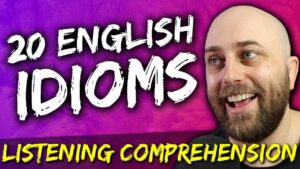
AE 1359 – 20 English Idioms To Transcribe
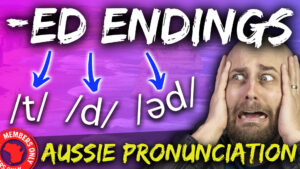
AE 1358 – How to Pronounce -ED Endings in Australian English [Members Only]
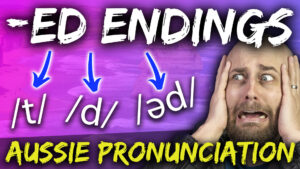
AE 1357 – How to Pronounce -ED Endings in Australian English

AE 1356 – Will AI Save Us Or Replace Us?
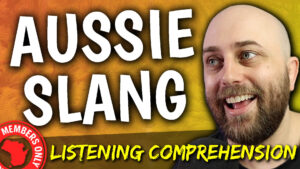
AE 1355 – 20 Aussie Slang Sentences Explained [Members Only]
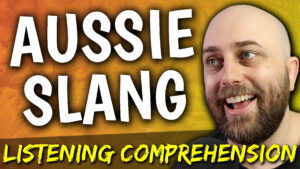
AE 1354 – 20 Aussie Slang Sentences to Transcribe

AE 1353 – The Goss: How the Australian Property Market Got Cooked!

Share

Join my 5-Day FREE English Course!
Complete this 5-day course and learn how to study effectively with podcasts in order to level up your English quickly whilst having fun!


Want to improve a specific area of your English quickly and enjoyably?
Check out my series of Aussie English Courses.
English pronunciation, use of phrasal verbs, spoken English, and listening skills!

Have you got the Aussie English app?
Listen to all your favourite episodes of the Aussie English Podcast on the official AE app.
Download it for FREE below!



Want to improve a specific area of your English quickly and enjoyably?
Check out my series of Aussie English Courses.
English pronunciation, use of phrasal verbs, spoken English, and listening skills!
Leave a comment below & practice your English!






Responses